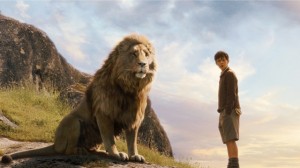These Words
Inhale on an impale, stale gale
Wind pipers piping light
Lubricated lyrical spirit fear
Fused amusement bemused barking
Inward swarms of pulsating prose
From embryos born for the beat,
Beat, beat of a feet shackle rattle
And cul de sac cattle nearing
Atmosphereing held so dear oh dear
Forever endeavours near temporarily
Weather clear steering, clung to
To acidic tongue less bananananana split
You were a poet and you didn’t
Know it
Down sulphuric streets
And cyanide cities sizzle pity
For peroxide prose sprouting
Roses for gargantuan razor
Behaviour eyes wander the big
Big, big blue ponderous came
Methane planes blowing fire from
Bulging bowels belated burns
Steaming cup of couplets and
Palatable plates of never late
Late, later si o nara see you
Never been scenesters blow it
You were a poet and you didn’t
Know it
Deprived dives surviving
Smoke spiralled gravel why oh
Why un ravels to manic melody
Making way for eroding doors
Exploding twinges form lyrical
Laden havens shaven sheared and
Awaken for brief spells of
Torturous teeth galloping for
The gallows of narrow headed
Sparrows carrying crieless
Cringes from tightened fringes
Abysmal whinge syringe
Intravenous on shores of Venus
Lures soul searching besmirching
The verse rises, the verse, verse
Verse rises from caricature
Curses and bullet proof hearses
Clogging holes in citrus souls
Forming storms of high pressure
Wit you were a poet and you
didn’t know it
Amidst dawns
Born the crack, crack cracking
Scorch of snapping wrists and
Pen fist kissing page after
Page in ink filled rages to
Old salty slurs squeezing brazen
Breezes and spiteful sneezes
Muscle tearing bag bearing
Coffee closeness inspires the
Fire once again, inspires the
Fire once again round the bend
To endless ruts and ifs and buts
Unleash great barrier grief’s
Falsetto stiletto walking endless
Lines breaking spineless refines
Silent ways and new dawn ages
Spitting peroxide prose
Forgetfully trodden in sodden
Grit, never know, never show it
You were a poet and you didn’t
Know
That these words will tame
You, these words will maim you
These words will shame manifested
Membrane pain the same you fell
Over feeling peeling on pulsating
Skin spinning on nonchalant knees
Spurring
These words will stir
Mountains counting blow after blow
After blow stones sew scintillating
Socked rock flock the airways
Ferocious fairway for pursed
Lips dripping sounds hounded
Down high pursuit stratosphere
Chases forged faces on brainwashed
Birds these words heroic
You were a poet




